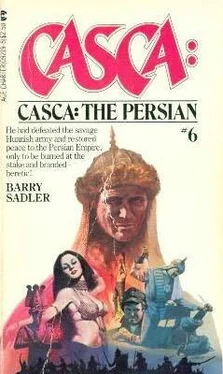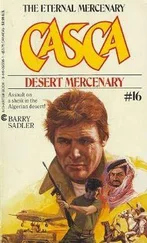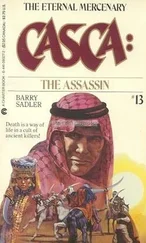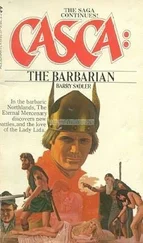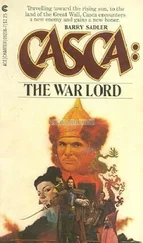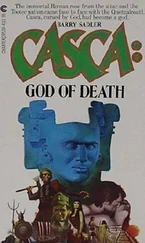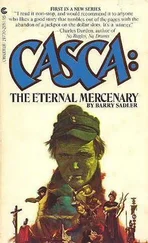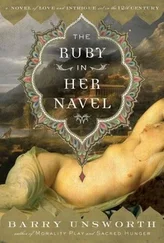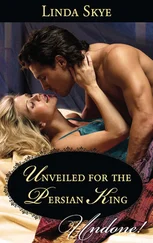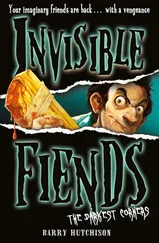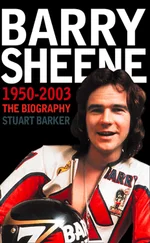Barry Sadler - The Persian
Здесь есть возможность читать онлайн «Barry Sadler - The Persian» весь текст электронной книги совершенно бесплатно (целиком полную версию без сокращений). В некоторых случаях можно слушать аудио, скачать через торрент в формате fb2 и присутствует краткое содержание. Жанр: Фэнтези, на английском языке. Описание произведения, (предисловие) а так же отзывы посетителей доступны на портале библиотеки ЛибКат.
- Название:The Persian
- Автор:
- Жанр:
- Год:неизвестен
- ISBN:нет данных
- Рейтинг книги:4 / 5. Голосов: 1
-
Избранное:Добавить в избранное
- Отзывы:
-
Ваша оценка:
- 80
- 1
- 2
- 3
- 4
- 5
The Persian: краткое содержание, описание и аннотация
Предлагаем к чтению аннотацию, описание, краткое содержание или предисловие (зависит от того, что написал сам автор книги «The Persian»). Если вы не нашли необходимую информацию о книге — напишите в комментариях, мы постараемся отыскать её.
The Persian — читать онлайн бесплатно полную книгу (весь текст) целиком
Ниже представлен текст книги, разбитый по страницам. Система сохранения места последней прочитанной страницы, позволяет с удобством читать онлайн бесплатно книгу «The Persian», без необходимости каждый раз заново искать на чём Вы остановились. Поставьте закладку, и сможете в любой момент перейти на страницу, на которой закончили чтение.
Интервал:
Закладка:
One of the outriders came at a gallop, his horse lathering at the chest and mouth. He reined up infront of Casca and Shirkin.
"Lord, I have sighted a band of Huns heading to the north of us. I think they are making for the river crossing."
"How many?" Shirkin beat Casca to the question.
"Perhaps as many as we, not more."
Shirkin turned eagerly to Casca. "How say you, my Lord? Do we pursue the beasts?"
Casca thought it over. "No! We'll let them go this time."
The messenger spoke again. "Forgive me, Lord, but the savages have already laid waste one village in their path and have slain all there. Even the old men and babes. And Lord, there lie at least two other villages in their path before they reach the river. Will you leave your people to face them alone?"
Casca had seen the handiwork of the Hunnish tribes too many times not to know what anyone who came across them would face, and death, he knew, would be the least of the agonies. Raising up in his saddle, he called:
"Bring in the flankers and scouts, we ride north!"
Shirkin cheered at the words, as did all in hearing range of Casca's voice. They turned the column northward, riding swiftly. Casca made them alternately get down from their horses and run along beside them while hanging on to the saddle straps or to the horse's tail. This would give the animals rest from the weight on their backs, and though not as fast as riding constantly, Casca knew from experience that they would more than make up for it inthe long run by covering more distance and still having fresher mounts when they needed them.
By sundown they had come across one of the villages previously visited by the Huns. The sweet stench of death greeted Casca's small force. All were dead. What the scout had said about the other village was also true here. Men, women, and children had all been slaughtered. The Huns had obviously rounded up everyone and herded them into the center of the small village, and there had methodically cut every person's throat. Even the babes, lying still now beside their mothers, had not been spared. It was a scene like this that, more than anything else, always brought the black urge to kill over the Roman. And as they rode on, the hate grew with each league as they closed in on their quarry.
All that night they rode, eating and sleeping in the saddle. By dawn, they knew they were very close. The droppings from the Hun's mounts in front of them were still damp and steaming. They were only minutes behind them now and Casca, red-eyed and angry, wanted them badly.
He hadn't fought in the battle in the valley. There'd been no need. But this was one he would not miss out on and his sword would be needed. They crested a rise and Casca called a halt. Below, crossing a small plain, were the Huns, strung out in a ragged line. Their numbers, as his scout had estimated, were about equal.
Wondering how to catch up with the Huns, Casca noticed the enemy would be forced to cross a large field of high grass, shimmering yellow now in the morning light, thigh high to a man.
Casca called to Shirkin to send him four riders and a spare mount for each. He explained his plan for stopping the Huns to Shirkin and the youngster grinned in boyish glee.
"As you command, Lord." Shirkin gave the orders and the four light archers sped off to the side of the rise, riding as though there would be no tomorrow. Whipping their horses, they raced the already tired animals, leading their spare mounts by lead ropes. About halfway to the field of grass, as Casca watched, they leapt first one, then another, from the backs of the spent horses onto their spares, releasing the tired animals and whipping the others onward. They passed the Huns, who were staring at them in wonder. The riders were too fast and the Huns let them pass without trying to give chase. They and their horses were too tired and besides, what danger could four lone riders represent when they were this near to the river crossing and there were no Persians ahead.
The Persian riders raced on into the highest part of the grass, disappearing from sight. Casca waited impatiently. He didn't let his horsemen leave the heights, not wanting to give the Huns any more to alarm them.
Shirkin pointed with his drawn sword. "There, my Lord! They have started!"
From the grass came one lone tendril of smoke, and then another. In ten minutes, the entire field of grass was one solid line of flames in front of the Huns. At this precise moment, Casca gave the order to form and advance.
The wind was blowing in their direction, into their faces and those of the Huns, but the Huns'attentions were focused on the sea of fire before them; their tired, frightened animals whinnied and shied at the crackling roar of the flames. They halted now to wait out the fire. From where they were situated, the Huns knew the flames couldn't reach them and would burn themselves out without too much trouble. All they had to do was wait. Many of them took this opportunity to dismount and take a leak or a crap while squatting beside their mounts. Several were still in this awkward position when the first arrows of Casca's archers reached them.
The wisdom Casca had shown in having his men give the horses a break while running beside them proved its value now. His men were tired from the forced ride, but the memory of what they'd seen in the village had been riding with them. It gave them the needed factor to drive down on the rear of their ancient enemy. Hate drove them, hate so strong that it drove away fear of their own deaths.
The Huns were still strung out in a single ragged line up to the edge of the grass. Casca and his warriors swept down and over them, rolling them up a few at a time as they hit en masse.
Casca left the use of the bow to his Persian archers, who were much more proficient in shooting from the saddle than he himself was, and used only his sword. The longer Persian blade proved its merit over the Roman short sword by giving him a longer reach, which he used to good advantage. The strength of his swing was aided by the movement of his horse. His blade flashed again and again, and with each stroke a Hun went down minus his head, the body standing momentarily before falling to lie twitching in death on the ground.
About one half of the Huns had managed to gather in force, their backs against the searing wall of flames, grass smoke swirling about them, gray clouds stinging their eyes and sending their mounts into a state of frenzy. Only the strong hands of their masters kept them from bolting and running wild.
The Persians drew up in line, facing their enemies. Both sides had bows drawn and arrows notched, waiting for what both sides knew would be death.
The horses of each side stood, legs wobbly, their flanks heaving. No word was spoken. Only the crackling of the raging grass fire made noticeable sound.
They waited, each side trying to gather its strength. One of the Huns in the line threw back his head and, face to the sky, he held his sword to the heavens and began to sing, a strange gutteral cry, rising and falling. He was calling upon the primal spirits of the earth and sky to accept him. The others took up the death cry in unison and the Huns prepared to die.
To Casca's ear, the combined voices of the Huns were not unlike the howling wail of wolves. The final note of the death song faded. Small fires flared up, then died under the stamping hooves of the horses. Smoke bit at their eyes, causing tears to run freely from the eyes of the Persians as well as from those of their foe. They waited, both sides crying, the moment tense while each watched the other. Then, at an unspoken command, the Huns broke and charged. The wild creatures of thesteppes whipped their flagging beasts into a ragged gallop. The Persians waited until only a hundred feet separated them, then raised their bows and fired. The arrows, streaking single shafts of death, glided through the air to find their targets. The Huns went down under the rain of wooden shafts and the Persians dropped their bows and drew swords to close in upon the survivors.
Читать дальшеИнтервал:
Закладка:
Похожие книги на «The Persian»
Представляем Вашему вниманию похожие книги на «The Persian» списком для выбора. Мы отобрали схожую по названию и смыслу литературу в надежде предоставить читателям больше вариантов отыскать новые, интересные, ещё непрочитанные произведения.
Обсуждение, отзывы о книге «The Persian» и просто собственные мнения читателей. Оставьте ваши комментарии, напишите, что Вы думаете о произведении, его смысле или главных героях. Укажите что конкретно понравилось, а что нет, и почему Вы так считаете.
